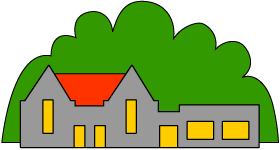Aldborough Primary School Curriculum Vision
Our School Vision: To energise everyone to take responsibility for their learning. To inspire each other to be the best that we can be.
Our vision is underpinned by our core values:
- Individuality
- Respect for each other (be ready, be respectful, be responsible)
- Pride in our school
- Community and Collaboration
What we believe is important for our curriculum: Our Intent
Our curriculum vision is to energise, challenge and engage all children to embrace every opportunity in order to develop and extend their knowledge, understanding and skills through our ambitious curriculum. Through their individual responses and collaborative learning, the children know more and remember more, helping them to flourish and achieve ambitious outcomes. We aim to harness and embed the school’s vision of respect so that when children reach the next stage in their education they are confident, ready to learn more and are compassionate individuals determined to make a position contribution to their community and society.
Why the curriculum is designed as it is: Implementation
Our broad and balanced curriculum is underpinned by the National Curriculum (2014) and our school values. It has been designed to enable the children at Aldborough Primary School to learn knowledge, values and skills that will enable them to make progress and succeed. At Aldborough, we believe that the foundations of learning start with mastering the fundamental skills of language, reading, writing and maths. It is with these skills that we can develop and nurture our future scientists, authors, artists, dancers, engineers and athletes. These ‘fundamentals’ are the strong foundations upon which we can develop the whole child to achieve their potential and discover their talents.
The curriculum is designed on the basis of a two year rolling programme of topics to support our mixed aged classes (with the exception of History and Geography in KS2 which is on a 4 year rolling programme). This ensures that children do not repeat topics unnecessarily. Learning is implemented through topics which are designed to inspire and interest our children. Half termly topics allow the children to embed knowledge and integrate knowledge into larger concepts. When planning our curriculum we thought carefully about the knowledge that our children need to know; knowledge that is particular to them (such as local geography and history), and also knowledge they have limited experience of (culture and diversity). We use our school community to enrich our curriculum e.g. assemblies, visiting speakers and themed days of learning. Forest School is integral to learning especially in EYFS and KS1.
Each topic starts with plans that inform the areas of learning, knowledge and vocabulary to be acquired. We also look in depth at prior learning alongside ambitious endpoints for the children. Our plans support assessment, progression and consistency throughout the school. Well planned sequences of lessons that value an active approach to learning through direct, hands on experiences allow children to explore, question, learn transferable skills and make links across the curriculum. Reading is encouraged in all subjects to support the development of substantive knowledge. Children use their prior learning to develop connections in their learning and to use their memory by revisiting particular themes. To support this, teachers use a variety of cognitive learning strategies and elements of retrieval practice. Weekly plans are adapted in line with the systematic assessment of the children’s knowledge alongside the teachers’ own reflection and evaluation of teaching strategies. Termly progress in core subjects is regularly discussed and helps us to plan the following sequence of lessons to revisit concepts to address gaps in learning and any misconceptions.
We believe that all children must be offered a learning experience which matches their individual needs and is challenging and supportive and enables every individual to achieve their full potential. Children must be given every encouragement to play a positive role in their present and future community. Adaptations are made to our curriculum to support all children, especially those with additional needs or those who are gifted and talented. When children have Special Education Needs, their needs are identified and adaptations will be made through resources, scaffolding, flexible groupings and use of technology. The class teacher, SENCo and parents will work together to ensure the best outcomes for the children.
A range of initiatives, focused days, trips, visitors and extra-curricular activities are undertaken to establish a curriculum that is inspiring, valued and enjoyed by all.
Our school values are used to encourage positive learning attitudes and respectful behaviour and conduct. These values provide a framework within which we encourage the children to build character; become responsible, respectful citizens and know how to keep physically and mentally healthy. Our values allow us to make links across the curriculum and respond to current issues such as preventing radicalisation through teaching diversity, equality, tolerance, keeping children safe online, as well as meeting the statutory requirements for RSE and developing emotional well-being. The importance of being independent (through the development of resilience and creativity), collaborative (being compassionate and respecting different views and ideas), reflective (by ensuring time to think and respond appropriately) and being happy at school and beyond, cannot be underestimated.
We are proud of our respectful, inclusive school where individuals thrive within a sense of collaborative community.
